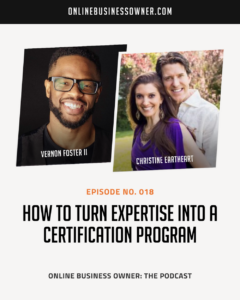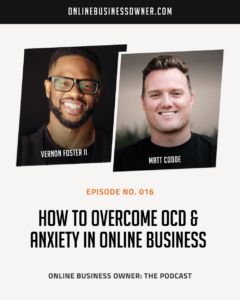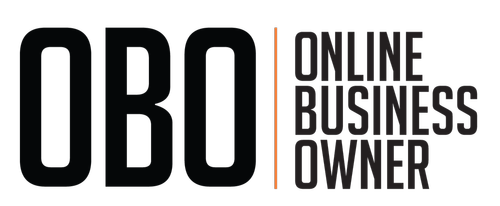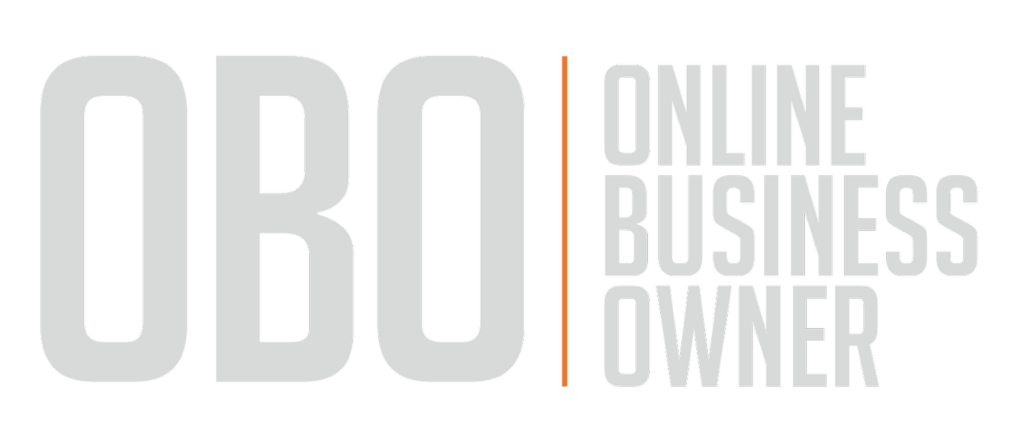7 Proven Tips To Double Your Close Rate On Sales Calls
Written by: Jason Moss • August 14, 2023

Image Source: https://unsplash.com/@jopwell
Meet Joe.
Joe is a coach who sells a high-ticket offer over the phone, so you can imagine how important sales calls are to his business.
There’s a lot resting on that 45-minute conversation…
If there were gaps in Joe’s sales process, he could be leaving thousands of dollars on the table — every single month.
Because the truth is… Learning how to sell isn’t easy.
If you’ve ever felt awkward or clumsy on sales calls with potential clients (like Joe probably did in the beginning too)…
You’re definitely not alone.
As a former director of sales who helped scale a multi-7-figure coaching business, I’ve taught hundreds of coaches how to sell more effectively. Through experience, I’ve learned that often a few small tweaks can make the difference.
That’s why I’ve distilled what I know into seven proven tips to help you increase your sales call close rate. Doing so will help you convert more leads into clients, in a way that feels authentic and natural to you.
An AI tool called Gong.io recently analyzed over 20,000 sales conversations. And it discovered that the average salesperson speaks 65-75% of the time during calls…
— while top closers barely speak over 40%.
So the takeaway is simple: The less you talk, the more you’ll close.
Because sales is about making someone else feel seen, heard and understood. And the best way to do so is not by talking. Instead, you should ask questions, be genuinely curious, and listen with both presence and attentiveness.
If you want to start signing more clients, start creating a space where your prospects feel heard.
One way to do this is by turning rebuttals into questions. For example, if someone says, “I had a call with another coach before I spoke with you and learned about their program. I’m not sure which one is a better fit.”
Rather than jumping in and rattling off all the features that make your program better, instead simply ask them… “What makes YOU feel like our program is a better fit?”
This way, you let your prospect work through their own objection, without speaking a word.
If you’re like most coaches, you probably have a script you follow on sales calls. There’s nothing wrong with scripts, and they can be a helpful tool in the selling process.
(Inside my programs, I provide all my clients with sales scripts, as it’s one of the easiest ways to get started and sign clients quickly.)
However, the main problem with scripts is that they can lock you into an overly rigid way of navigating conversations.
Sometimes, you may start to feel the disconnect between you and your prospect. But rather than calling it out, you simply ask the next question on your script, follow the process to a ‘T,’ and miss the opportunity to create genuine dialogue. Don’t do this!
Instead, when you’re feeling something off on a sales call, like unease, tension, weird energy or something unspoken between you and your prospect, call it out.
You can even use this phrase (thanks to Keith Rosen, who taught it to me): “I’m sensing there might be some [insert feeling detected] here… Is there any truth to that?”
Veering off script like this and calling out the elephant in the room can create an opening for your prospect to share an unexpressed concern. This can create a deeper and more authentic connection between you.
The most effective way to build credibility, proof and authority on sales calls is by telling stories.
Sharing client stories is actually disarming, because they turn off the “skeptic” in your prospects’ minds that often doubts or resists information you tell them. Now, you’ve paved a better path for your offer to be heard, increasing both believability and certainty in their minds while helping them overcome objections.
For example, let’s say a client asks you, “How long will it take for me to get results?” Instead of saying something like, “Everyone’s different, but I expect you’ll start seeing traction in 2-3 months”…
Tell them a story about one of your clients, like, “Take my client Rachel, for example. She was in a very similar place as you when we first started working together. We helped her with X, Y and Z, and within 30 days, she signed her first $4,800 client. Three months later, she hit her first 10K month.”
Stories create evidence and proof that you can actually deliver what you say you will (and most coaches don’t use them enough!).
One of the biggest influences on your close rate isn’t what you say on the call, but everything your prospect sees, hears, reads and watches before they get on the call with you.
So how can you do a better job in your “pre-selling” marketing, so your prospect has already bought-in before they get on the call?
Maybe this means setting up an email autoresponder that shares testimonials and overcomes common objections…
Or sending an introductory video to walk them through your offer and the results it has created for others.
The better your marketing is at pre-selling prospects on your offer, the easier your sales calls will be, equating to less work on the call.
The reason why people hire you is simple: They believe you can help them get where they want to go. Because people want results. They don’t really care about what it takes to get them.
What they do care about is whether your process will work or not, and that it won’t be too much trouble to implement.
If you focus too much time on explaining the process — the program details, how it all works, what each step looks like, etc. — you’ll struggle on sales calls.
Because the more you share here, the more you distract your client from seeing the big picture (a.k.a. your program being the bridge to get them where they want to go). And the more they’ll view your offer as overwhelming, time-consuming, and potentially “more trouble than it’s worth.”
Instead, keep your pitch brief and high-level.
Focus on the results and outcome they’ll get after working with you. What will they have, create, be, or feel after going through your program? How will this impact their life, specifically?
The more you focus on results, instead of the process, the more attractive your offer will become.
French composer, Claude Debussy, once said that, “Music is the space between the notes.”
You might say the same thing about selling — that it’s the space between the words.
One of the most powerful tools you have to leverage in a sales conversation isn’t always what you say, but what you don’t. Silence allows someone to feel the full weight and impact of what they’re sharing with you (which can often increase their desire to work with you).
For example, one of the questions I ask potential clients is, “What happens if things don’t change?” For many of them, this is the first time they’ve reflected on this.
There’s an emotional weight to realizing that if they keep going down the path they’re on, they’re headed towards a place they really don’t want to be. It’s tough to acknowledge this, but it’s even tougher to feel the emotion behind the realization.
You will want you to jump in and save them by asking the next question, by stuffing the space with words so they don’t have to feel uncomfortable. BUT, that discomfort is exactly what someone needs to feel in order to create the internal leverage to make a change in their life.
That’s why, after someone answers this question on my calls, I typically leave a few seconds of open space for them to sit in complete silence. I do this because I want them to fully feel the impact of the words they shared. If I jump in and ask the next question too quickly, I rob them of that experience and do them a disservice, because they won’t feel that insight as deeply.
The silence is where you find the magic. So where can you create more silence on sales calls?
I’ve learned so much about selling by simply being in healthy, friendly relationships with others. Qualities, like presence, attentiveness, care, empathy, respect and love, matter. Many of these you probably already do well, especially as a coach.
At the same time, selling is a skill. And just like any skill, it can be improved with deliberate practice.
If you want to get better at selling and closing more deals, give your sales skills the attention they deserve. That means getting intentional about understanding your blind spots, evaluating your performance on calls, and studying how you can do better.
Start by recording your calls. Listen to them again afterwards. Take notes while you relisten. What did you do well? What did you miss? Consider recording your pitches and practicing them. Or hire a mentor or sales coach who can listen to your calls and give you feedback.
Because the more time and attention you give to improving your sales skills, the better you’ll get. It’s as simple as that.
Learning how to sell well is one of four keys to building a profitable coaching business, and inside my free Client Attraction Guide, I walk you through the other three keys in detail…
I’ll show you the biggest pitfalls to avoid in each step, so you can start signing more clients and accelerate your journey towards becoming the thriving, successful coach you want to be.
Wishing you nothing but success on your next sales call.
Thanks For Reading
About The Author

How to Turn Expertise Into A Certification Program With Christine Eartheart
After years of industry experience, many entrepreneurs shift from self-mastery to training others, allowing them to duplicate their efforts and scale their businesses. TEDx speaker and host of the Thriving Relationships Show, Christine Eartheart shares how she turned her craft into a certification program that generates multi-6-figure launches.

How to Overcome OCD & Anxiety In Online Business With Matt Codde
Ever feel like OCD and/or anxiety take over your day, your business or your life? Overcome these obstacles and regain control of your life using expert strategies from licensed clinical social worker Matt Codde, including his Triple-A Response and other practical tools to break the loop.

How to Sell in the DMs Without Being Spammy with Rose Radford
As online business owners, we’ve all heard about the magic of sliding into DMs to get more sales… but here’s the problem… how do you pull it off without being spamming or feeling like a used car salesperson and actually get results? Today, Rose Radford will show you how.

